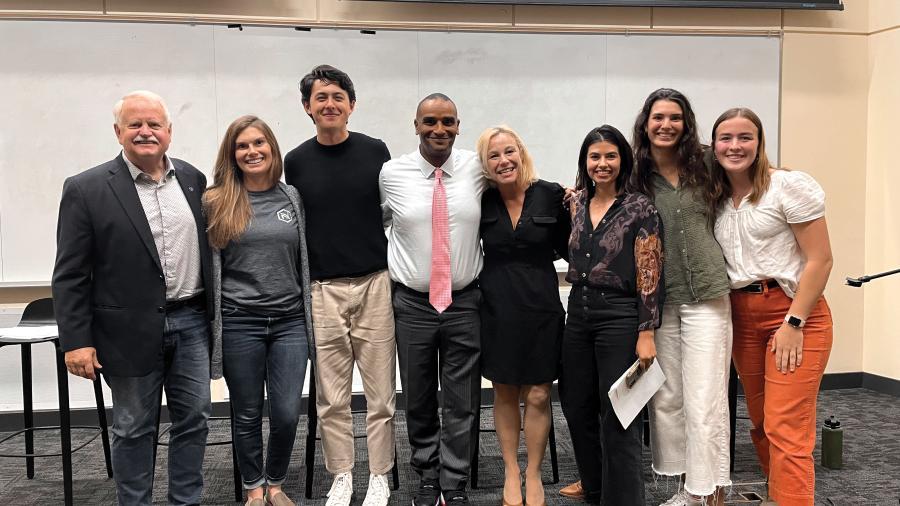Westmont Magazine There's More to Know: Urban Initiative Hosts Santa Barbara Mayor and Activists on Campus to Discuss Homelessness and Human Trafficking

by Jenae McInnes ’24, News Editor of The Horizon
Edited from a longer story that appeared in The Horizon on November 1, 2022. Reprinted by permission.
In October, Urban Initiative (UI) hosted a panel series, “There’s More to Know,” focusing on two issues that often seem far removed from Westmont’s secluded campus: homelessness and human trafficking in Santa Barbara. The speakers included prominent community leaders, notably, Santa Barbara Mayor Randy Rowse and activists from organizations such as Noah’s Anchorage and the Santa Barbara Alliance for Community Transformation (SBACT).
The event on homelessness featured the documentary “Sonder” — which originally premiered at last spring’s Santa Barbara International Film Festival — about the pervasive issue in Santa Barbara, and featured the film’s producer, Dag Forsberg. Its name refers to a relatively new term for the “realization that each random passerby is living a life as vivid and complex as your own.” The film hopes to impress this feeling upon its audience regarding the homeless population of Santa Barbara.
“The movie really beautifully showed the humanity of people experiencing homelessness and the need for true perspective and learning from people, not just relying on preconceived notions,” says fourth-year Sydney Azzarello, UI’s local teams and education coordinator.
The panel included Mayor Rowse, as well as Brandon Miller and Jen Shappee, two people featured in the “Sonder” documentary. “They have since gained housing and employment, and they have incredible stories,” Azzarello says. “Hearing all the amazing work and collaboration that is going on was very inspiring.” Leaders of local nonprofits such as Citynet also served as panelists.
The human trafficking panel focused on education and awareness of what trafficking looks like in Santa Barbara. Participants also dispelled common misconceptions about its survivors, emphasizing that most aren’t foreign and come from all socio-economic backgrounds. “The event was a sobering reminder that this is happening,” Azzarello says. “But it was encouraging to see so many go-getters who are committing their lives and careers to combatting this problem.”
The panel also featured Rita McGaw of Victim Witness with the district attorney’s office, as well as Sally Cook, founder of Hope Refuge, a residential therapeutic facility for survivors. Activists from Noah’s Anchorage and the Good Samaritan Shelter also spoke. Fourth-year Westmont student Payton Lindman Marshall, previous leader of Westmont’s Trafficking Action Group (TAG), was the only college student on the panel.
TAG announced at the event that the group will meet once a month to provide more education about human trafficking and support for activists working on the front lines. “Human trafficking is a really sensitive situation,” Azzarello says. “For people who have been trafficked, consistency is key … it’s a heavy and complicated topic. TAG’s role on campus is to educate students for both their own safety and their community’s safety. It serves as a way to be involved responsibly.”
According to Azzarello, UI plans on hosting similar educational events. People interested in these two key issues in Santa Barbara can attend TAG meetings and weekly Bread of Life meetings — UI’s meal-sharing program for people experiencing homelessness — in addition to the UI spring-break service opportunities.